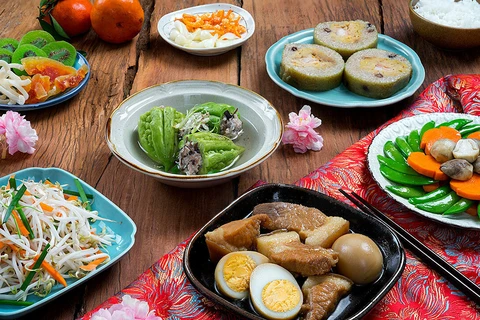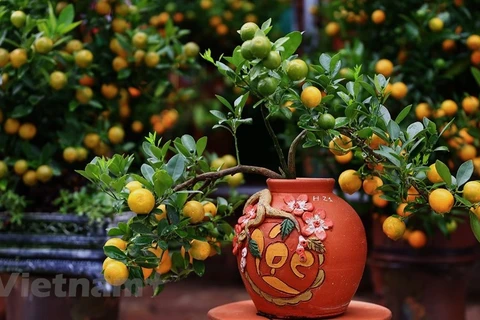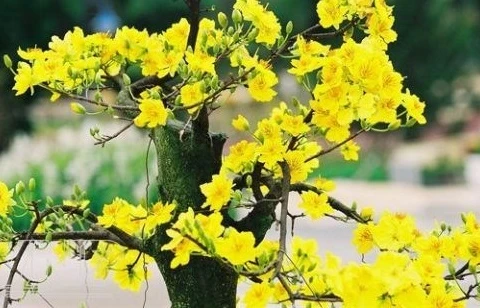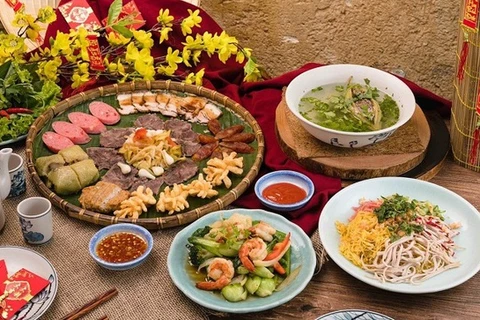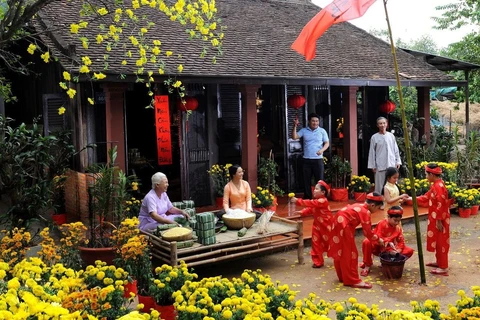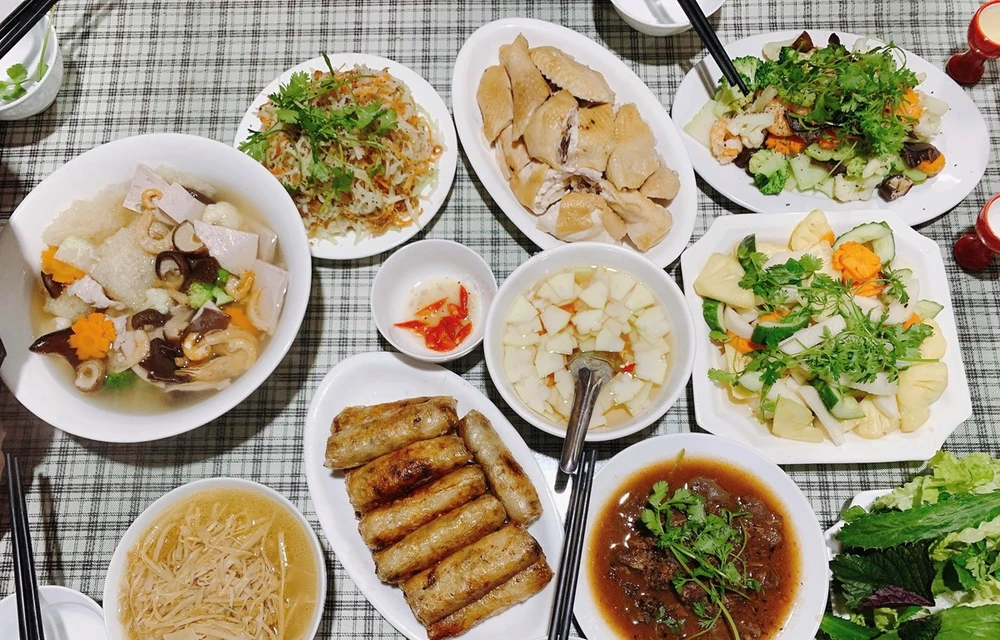
Hanoi (VNA) – When mentioning Bat Trang, most people immediately think of the traditional ceramic making craft which has made the village famous for centuries in the country. Few know that the village is also a cradle of traditional Vietnamese cuisine with many dishes and original flavor passed down many generations.
The flavor of traditional Lunar New Year (Tet)
Like in the ancient capital of Hanoi, a traditional Tet feast in wealthy families in Bat Trang must comprise of six bowls and eight plates of food, representing good fortune. Meanwhile, in less well-off families, a Tet feast usually has just four bowls and four plates symbolizing four seasons and four directions.
The indispensable dishes for a Tet feast in a Vietnamese family are always fried spring rolls, boiled chicken, stir-fried vermicelli, stewed pigeons, lean pork paste, and dried pig skin soup. But in Bat Trang, there are two special dishes that should be cooked for all important feasts, especially on the last day of the lunar year, which are stir-fried kohlrabi with dried squid and dried squid soup with dried bamboo shoots.
For residents of Bat Trang village, “chung” cake in the feast on New Year’s Eve is the last dish, just like a dessert, to be eaten together with mung bean pudding. For feasts in summer, the dessert will be sticky rice with split mung bean and sweet soup from kudzu powder.
77-year-old Nguyen Thi Lam has cooked traditional dishes since she was married into a rich family in Bat Trang over half a century ago. Born into a family in Hanoi’s Hang Than street, Lam was taught to cook traditional dishes in Hanoi’s way since a young age. As the eldest daughter-in-law, she was responsible for family feasts on important occasions.
 The old house of Nguyen Thi Lam’s family, which was built at the same year with the start of construction of Long Bien Bridge in 1897. (Photo: VietnamPlus)
The old house of Nguyen Thi Lam’s family, which was built at the same year with the start of construction of Long Bien Bridge in 1897. (Photo: VietnamPlus) Even with the same materials, dishes cooked by Lam have distinctive flavor thanks to her meticulous processing of materials and use of spices and herbs. She said she loves cooking and always cooks with all her heart be it for her family or visitors.
“Secrets” of a culinary artisan
The dish that makes the feasts in Bat Trang village different from those in other localities is the dried squid soup with dried bamboo shoots.
According to Lam, for a standard bowl of dried squid soup with dried bamboo shoots, the dried squid should be female squid caught in the north central province of Thanh Hoa, and the bamboo shoots should be from the northern province of Yen Bai.
Dried squid must be washed in alcohol mixed with ginger juice, then grilled on charcoal until dry and bright yellow, and shredded into fine threads. The cook will then stir-fry the squid threads with some sugar and salt until they turn brownish yellow. If the squid threads are stir-fried for too long, they will become crunchy, but if the time is too short, they will be chewy.
 Dried squid soup with dried bamboo shoots looks simple but in fact requires elaborate and time-consuming preparation (Photo: VietnamPlus)
Dried squid soup with dried bamboo shoots looks simple but in fact requires elaborate and time-consuming preparation (Photo: VietnamPlus) The dried bamboo shoots are soaked for two days, then shredded into fine threads. The threads are boiled then washed in cold water. The process should be repeated three times. After that, the boiled bamboo threads are marinated with fish sauce and salt for some time before being stir-fried with chicken and shrimp broth. When there is no water left in the pan, the cook puts the squid in and continues to stir until it's dry, then adds the remaining chicken broth or pork bone broth. It needs to be cooked for about 45 minutes over low heat.
Throughout ups-and-downs history, in old houses deep in small alleys in Bat Trang village, the traditional flavor is still kept and passed from generation to generation, becoming the pride of people in the village./.

